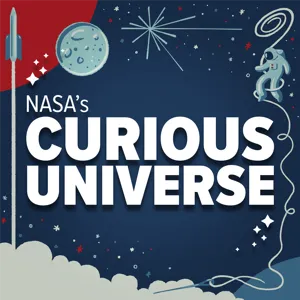Podcast Summary
The science behind tattoos is still a mystery: Scientists are exploring the fundamental science of tattoos, including their appearance in the body and potential health effects, despite their widespread use and social acceptance
Despite being a common practice with a rich history, the scientific understanding of tattoos is still evolving. Scientists like John Swirk at Binghamton University are increasingly interested in the fundamental science behind tattoos, with many aspects still unknown, including what a tattoo looks like in the body and the potential health effects of tattoo inks. Maddie Sofia from NPR explored this scientific mystery, sharing how even simple questions about tattoos have yet to be answered. While tattoos have become more common and socially accepted, the scientific community continues to delve deeper into this intriguing area of study.
Historical lack of regulation in tattoo ink industry: Despite growing popularity, tattoo inks lack comprehensive labeling and regulation from the FDA, potentially putting consumers at risk for unknown health consequences over time.
The tattoo industry has historically relied on self-regulation regarding the safety of tattoo inks, but there are concerns about potential health risks due to lack of regulation and transparency. Tattoo artists in the past would often try out untested inks on themselves to gauge safety, and there is still a lack of comprehensive labeling and regulation from the Food and Drug Administration (FDA). With the increasing popularity of tattoos and the proliferation of ink manufacturers, artists have more options to mix and match colors from various sources. However, there are unknowns regarding the long-term safety of these inks, and potential health risks such as delayed reactions or the breakdown of ink components over time due to sunlight exposure. Scientists are working to understand these risks, but more research and regulation are needed to ensure the safety of tattoo inks for consumers.
Tattoos can cause chronic reactions and health issues: Tattoos can lead to chronic reactions and potential health issues due to specific pigments or other ingredients, some of which are regulated in Europe but not always disclosed by manufacturers.
Tattoos, which contain various pigments and potentially harmful substances, can cause allergic reactions and other health issues. A study involving 300 people in Central Park revealed that some individuals experienced chronic reactions, including itching, scaling, raised skin, and swelling, lasting over four months. These reactions could be due to specific red pigments or their breakdown products, or other associated ingredients. European regulations require tattoo ink manufacturers to label ingredients and limit chemicals known to cause cancer, DNA damage, or allergies. Some inks have been pulled off the market due to excessive amounts of metals like nickel, cadmium, zinc, and even arsenic. However, it's important to note that not all manufacturers accurately disclose ingredients, and some metals may come from the needles rather than the ink itself. Despite the potential risks, researchers know very little about how the cells in our body react to tattoos.
Immune System Interacts with Tattoo Pigments: The immune system constantly interacts with tattoo pigments, with macrophages capturing and releasing them, a process crucial for immune function, but long-term health effects are not fully understood, and regulations are being proposed in Europe.
Tattoos are not as static as they seem. While they may appear to be unchanging, the immune system is constantly interacting with tattoo pigments. Macrophages, immune cells responsible for detecting and consuming foreign substances, capture and retain tattoo pigments, releasing them when they die and getting absorbed by new macrophages. This process, known as antigen presentation, is crucial for the immune system's function. However, the long-term health effects of this process are not yet fully understood. There is a lack of comprehensive data on the association between tattoos and health issues, making it difficult to draw definitive conclusions. Despite this, some European countries are pushing for tattoo ink regulations, sparking controversy among tattoo artists and suppliers. Ultimately, it's essential to approach the issue with a collaborative and informed perspective, ensuring that any regulations implemented are sensible and based on scientific evidence.
The Importance of Understanding Tattoo Ink Safety: Scientists are working to build a public database to analyze commercially available tattoo inks and ensure safer choices, while it's important to consider potential risks and make informed decisions about tattoo ink.
The lack of understanding and regulation surrounding tattoo ink can lead to potential health risks. People often don't ask about the ink used in their tattoos or where it comes from, allowing anyone to buy it online for home use. Scientists are working to build a public database to analyze commercially available inks and provide information for safer choices. While tattoos are a deeply personal form of artistic expression, it's important to ensure their safety. Researchers are not trying to vilify tattoos but rather understand the potential consequences and ensure safety measures are in place. This episode provided a fascinating insight into the science of tattoo ink and the importance of understanding what we put in our bodies. It's crucial to consider the potential risks and ensure that there is enough scientific data to make informed decisions.






